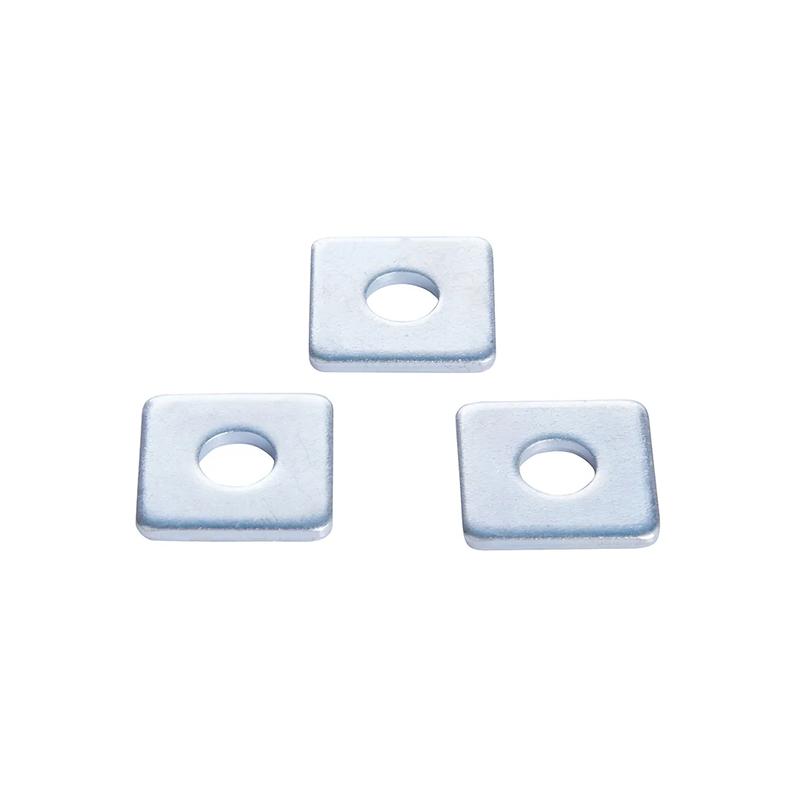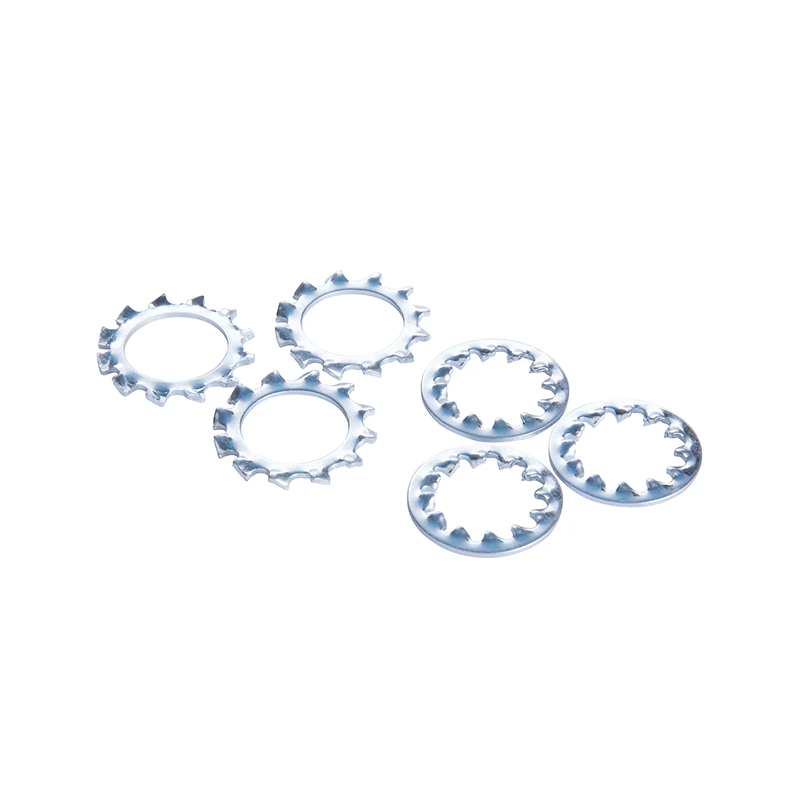What Are the Key Benefits of Using Self-Tapping Screws in Construction Projects?
 2025.10.27
2025.10.27
 Industry news
Industry news
Self-tapping screws have become an essential component in the construction industry. They offer various advantages, making them a preferred choice for both small DIY projects and large-scale construction endeavors. These screws are specifically designed to tap their own threads as they are driven into materials, which eliminates the need for pre-drilling pilot holes.

1. Time Efficiency
In construction, time is a critical factor. Every minute saved on the job site can lead to a faster project completion. Self-tapping screws significantly improve time efficiency during installation. Traditional screw installation often requires a two-step process: drilling a pilot hole and then driving the screw into place. However, with self-tapping screws, these two processes are combined into one, eliminating the need for a pilot hole altogether. This not only speeds up the work but also reduces the chance of making mistakes when drilling.
Advantages of Time Efficiency:
- Quick Installation: Self-tapping screws cut their own threads as they are installed, making the process faster compared to standard screws.
- Reduced Setup Time: Without the need for pilot holes, workers can move quickly between tasks, allowing them to complete jobs faster.
- Minimized Downtime: Since there’s no need to swap between different tools (such as drills and screwdrivers), the installation process becomes smoother and faster.
For example, consider a large-scale project like framing a building. Using self-tapping screws speeds up the entire framing process by eliminating the need to drill individual pilot holes for each screw. This results in fewer delays and a faster overall construction timeline.
2. Cost Savings
Self-tapping screws might have a higher initial cost than standard screws, but the long-term cost savings can be substantial. The savings primarily come from eliminating the need for additional tools, such as drill bits for pre-drilling holes, and reducing labor costs.
Factors Contributing to Cost Savings:
- Reduced Tool Costs: With no need for drill bits or other tools, construction teams save on the cost of purchasing and maintaining additional equipment.
- Lower Labor Costs: As self-tapping screws speed up the installation process, less labor is required to complete the task. This reduces the overall labor costs.
- Fewer Mistakes: The self-threading capability reduces the likelihood of errors, such as drilling too deeply or misaligning holes, which can lead to wasted materials and time.
When you multiply these savings over the course of a large construction project, the total cost reduction can be significant. Self-tapping screws are particularly advantageous in cost-conscious projects where materials and time must be optimized.
3. Increased Holding Power
One of the most important aspects of any fastener is its holding power, and self-tapping screws excel in this area. Unlike regular screws, which simply pass through the material, self-tapping screws cut their own threads into the substrate. This results in a tighter, more secure fit that is less likely to loosen over time.
How Increased Holding Power Benefits Construction:
- Better Grip: The self-cut threads provide a strong grip on materials like metal, wood, plastic, and composite, which are commonly used in construction.
- Improved Stability: The superior grip ensures that structures remain stable, which is particularly important for load-bearing elements like beams, frames, and supports.
- Reduced Risk of Failure: Stronger holding power means less risk of screws becoming loose or failing, leading to fewer repairs and maintenance issues down the line.
In applications where load-bearing or structural integrity is crucial, such as securing heavy components, self-tapping screws provide enhanced safety and reliability.
4. Versatility Across Materials
Self-tapping screws are highly versatile and can be used across a wide variety of materials, including wood, metal, plastic, drywall, and composites. This makes them ideal for multi-purpose applications on construction sites.
Examples of Materials Self-Tapping Screws Can Be Used With:
| Material | Self-Tapping Screw Application |
|---|---|
| Wood | Used for framing and furniture making. |
| Metal | Ideal for securing sheet metal in HVAC and roofing. |
| Plastic | Perfect for attaching plastic parts or insulation. |
| Drywall | Commonly used to fasten drywall to studs. |
| Composites | Useful for securing composite decking or panels. |
Because of this broad compatibility, construction teams don’t need to switch between different types of screws for different materials. Self-tapping screws provide a one-size-fits-all solution, improving efficiency on the job site.
5. Improved Aesthetics
While the functional aspects of self-tapping screws are paramount, aesthetics are also important in many construction projects. These screws often come with a flush design, especially when paired with countersunk heads. This feature ensures that once the screw is installed, it sits neatly below the surface, creating a smooth, professional finish.
How Self-Tapping Screws Contribute to Aesthetics:
- Clean, Flush Finish: Countersunk self-tapping screws sit flush with the surface, making them less noticeable, which is especially desirable for visible areas.
- Neat Appearance: The ability to drive the screw without damaging or marring the surface helps keep the final product looking tidy and polished.
- Reduced Surface Damage: Since self-tapping screws do not require pre-drilling, they are less likely to cause cracks, splits, or other cosmetic issues on the surface.
This aesthetic benefit is particularly important in visible areas of a construction project, such as furniture assembly, interior fixtures, or exposed metal structures, where appearance matters as much as functionality.
6. Reduced Risk of Material Damage
Damage to materials can be costly, especially in the case of delicate or expensive substrates. Traditional screws that require pre-drilling can cause damage if not done carefully. On the other hand, self-tapping screws reduce the risk of this type of damage because they are designed to cut their own threads without the need for pre-drilled holes.
Why Self-Tapping Screws Minimize Damage:
- No Pre-Drilling: Since there’s no need to drill before installation, there’s less risk of misdrilling or splitting the material.
- Self-Threading Action: The screw’s self-threading capability allows it to work with materials of varying densities without causing damage.
- No Risk of Over-Driving: Self-tapping screws often have built-in depth control, preventing over-driving that could crack the material.
This makes self-tapping screws an ideal solution for fragile materials such as plywood, drywall, or thin metals that are prone to cracking or splitting when handled improperly.
7. Enhanced Load-Bearing Capacity
Self-tapping screws are designed to handle heavier loads compared to regular screws. The self-threading feature provides a stronger bond between the screw and the material, which is especially important for structural applications.
Self-Tapping Screws in Load-Bearing Applications:
- Stronger Thread Engagement: The screw’s ability to cut threads into the material results in a firmer connection that can handle higher stresses.
- Ideal for Structural Elements: Self-tapping screws are commonly used for framing, mounting heavy equipment, and securing structural supports.
- Better Distribution of Load: The tighter fit and secure hold help distribute the load more evenly across the screw, reducing the risk of material failure.
In heavy-duty applications like steel framing or mounting large fixtures, self-tapping screws ensure a stable and reliable connection that can withstand significant forces.
8. Ease of Use
Self-tapping screws are known for their user-friendly nature. They are easy to use even for those who may not have extensive experience with tools or construction. This ease of use is especially beneficial in fast-paced construction environments where efficiency and speed are essential.
How Self-Tapping Screws Simplify Installation:
- Fewer Tools Required: Workers only need a screwdriver or a power drill to drive self-tapping screws into place, without the need for extra tools like drill bits or anchors.
- Minimal Skill Needed: The design of self-tapping screws ensures that even less experienced workers can install them quickly and accurately.
- Quick Learning Curve: New workers can quickly grasp how to use self-tapping screws, reducing training time and improving team productivity.
This makes self-tapping screws ideal for both professional contractors and DIY enthusiasts, as they simplify the fastening process and reduce the chance of errors.
9. Wide Range of Options
Self-tapping screws come in various sizes, coatings, and designs, giving construction teams a broad selection of fasteners to choose from for specific applications. From corrosion-resistant coatings for outdoor use to different thread styles for varying materials, there is a self-tapping screw for nearly every need.
Common Types of Self-Tapping Screws:
- Materials: Stainless steel, zinc-plated, brass, and coated versions for corrosion resistance.
- Thread Styles: Fine-thread, coarse-thread, and specialized threads for different material types.
- Head Types: Pan, flat, hex, and countersunk heads to suit various installation needs.
The wide variety of available options means construction teams can select the ideal screw for each specific job, whether it’s for outdoor use in harsh environments or for precision applications requiring a finer thread.
10. Reduced Need for Additional Fastening Tools
In some cases, self-tapping screws can replace other types of fasteners, such as anchors, rivets, or bolts. This reduces the need
for additional tools and hardware, streamlining the fastening process and making the overall installation more straightforward.
How Self-Tapping Screws Reduce Tool Usage:
- No Anchors Needed: Self-tapping screws can be used in place of anchors in many situations, eliminating the need for specialized anchoring tools.
- No Rivets or Bolts Required: For certain materials, self-tapping screws can perform the same function as rivets or bolts, reducing the need for different fasteners.
- Simplified Installation: With fewer tools required, the installation process is simplified, making it easier to complete tasks efficiently.
This reduction in tool requirements also helps keep job sites cleaner and more organized, contributing to improved safety and efficiency.



 English
English русский
русский










 Products
Products Tel: 86-574-62101087
Tel: 86-574-62101087 E-mail:
E-mail:  Add: Xiaocao 'e Binhai Industrial Park, Yuyao, Zhejiang, China
Add: Xiaocao 'e Binhai Industrial Park, Yuyao, Zhejiang, China